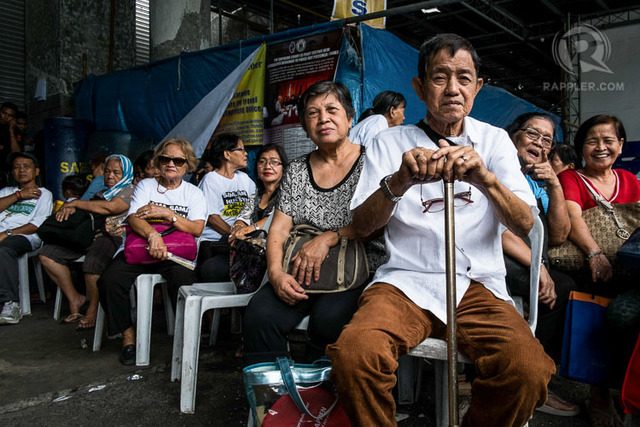SUMMARY
This is AI generated summarization, which may have errors. For context, always refer to the full article.


Older persons age 60 years and above who become infected with the novel coronavirus have a greater chance of hospitalization, complications, and death. Aside from age, medical problems such as heart and kidney disease, diabetes, and asthma may individually and cumulatively contribute to a poorer outcome. (READ: No, coronavirus isn’t the same as the flu)
So how do you protect yourself? An older person needs to eat a well-balanced diet, with a lot of fruits and vegetables, stop smoking tobacco, and engage in daily physical activities. Multivitamins or nutritional supplements may help if you are unable to eat properly, have poor dentition, or have a medical illness that affects appetite and digestion. Taking a daily dose of Vitamin C and a little bit of Zinc within 200% of the daily recommended allowance may help. Avoid high doses of any Vitamin C (2000 mg or higher) as this may cause kidney stones.
During hot days and summer, make sure that you take plenty of water, 1.5 to 2 liters a day, for those without kidney or heart disease. You may need a reminder to do this, as older persons may not always feel thirsty even if they are already dehydrated. Set up a one-liter pitcher of water on your table to remind you of how much you need to take before sunset. Take soup and juice in between. If you always get up at night to urinate, you may limit your fluids after 7 PM.
Follow your doctor’s advice on any disease that you have. Make sure you have at least 2 months’ stock of your maintenance medicines. If you need to follow up with your doctor or dentist, try a telephone, text, or online consultation before heading off to a hospital or clinic. Geriatricians do house calls for older persons who have a disability, or are bedridden. Take the yearly influenza vaccine and once-in-a-lifetime pneumonia vaccine. These two vaccines may help lower complications when the rainy season arrives. You don’t want both COVID-19 and the flu to hit you! (READ: ‘Super-spreaders’: A coronavirus myth or reality?)
Present yourself to the Emergency Room only if you have fever, cough, or diarrhea and know about a recent exposure to someone with COVID-19 or who had traveled to a COVID-19 hotspot. Tell your family to help you to the hospital, and don’t wait to consult until you can no longer breathe or have chest discomfort.
As a senior in the community and household, you have the responsibility of caring for others. Be aware of the DOH and WHO guidelines and always get updated through reliable sources of COVID-19 information. Be an expert in proper hand washing and cough etiquette. Lead your family in prayer and lighten the mood through humor. Share your wisdom and good counsel. You have much to contribute during this crisis. Social distancing may be important, but God’s spirit links us all. – Rappler.com
Shelley F. de la Vega, MD, MSc, FPCGM, was president of the Philippine College of Geriatric Medicine.
Add a comment
How does this make you feel?
There are no comments yet. Add your comment to start the conversation.